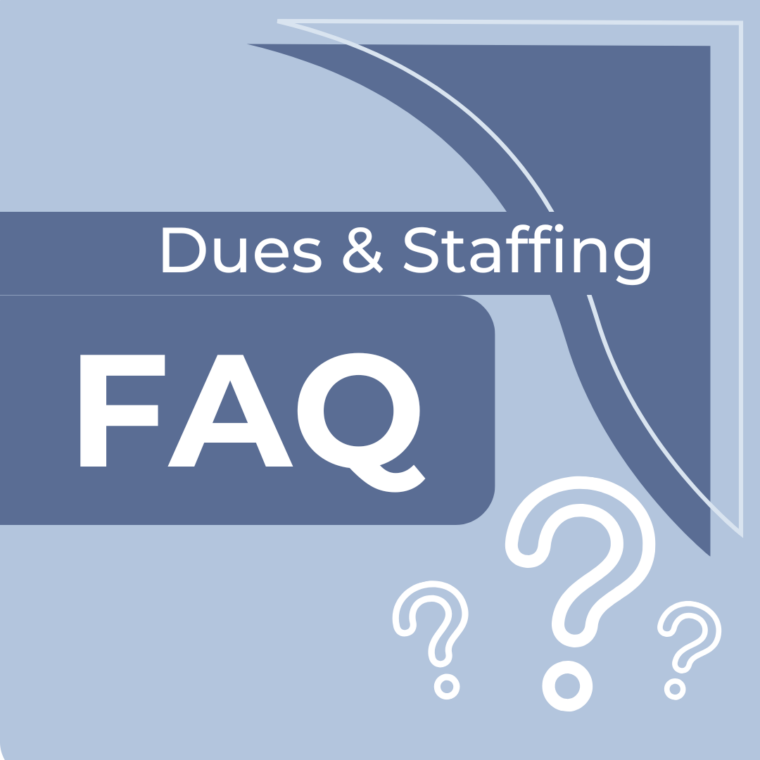The Executive Board has weighed this decision carefully and believes that a modest dues increase to help create two new support positions will add significant value at a minimal cost for members.
It is imperative for the Local to have sufficient staff and resources to support and train volunteers while also maintaining service to our membership when volunteers have reached their maximum capacity, or when complex issues need to be escalated.
We receive valuable support from our CUPE National Servicing Representatives and specialists (benefits, health and safety, pay equity, pensions, legal, etc.) in a consultative/advisory capacity but they are not responsible for managing the day-to-day workload of the Local.
Day-to-day workload support is needed for grievances, case-management, mobilization, research, and administration – all which are outside the scope of what CUPE National can provide.
Our Local’s dues contributions to CUPE National are 48.5 cents for every $1 that we collect from members and this amount cannot be lowered.
Yes. We have spent conservatively and have been in a surplus position for quite a long time, and now we need to invest those financial resources in a way that will provide more support for members. We only need a small dues increase to make the staffing plan feasible and sustainable.
Dues are a percentage of your gross salary and members received two, one-time lump sum payments this year that resulted in higher than usual dues in dollars. One for retro payment following our last round of collective bargaining for pay increases dating back to July 1, 2023, and the other for Bill 124 renegotiation for the period 2020 – 2023. This increase in dues has been accounted for in our calculations, and a modest dues increase of 0.15% would still be required to support the creation of two new positions.
To put this in terms of how Carleton explains their budget, the increase from the retro payments were one-time fiscal dollars, whereas the 0.15% would increase base dollars to support the funding of these positions on an ongoing basis.
Our Executive Board ran different scenarios to calculate for the hypothetical impact of various staffing/dues reductions on the ongoing feasibility of these positions. We project that we can remain financially stable even if we lose bargaining unit positions because of the early retirement program. We are prepared to adjust future budgets should the need arise.
Members who attend virtually and in person will be able to vote. Voting will be anonymous (physical ballots and virtual polls) and supported by our Elections Committee.
More generally, some people with less urgent questions or concerns may have to wait longer for responses. There can be risk of non-urgent issues becoming more serious if the Union does not have sufficient staffing and resources to respond to matters in a timely fashion.

